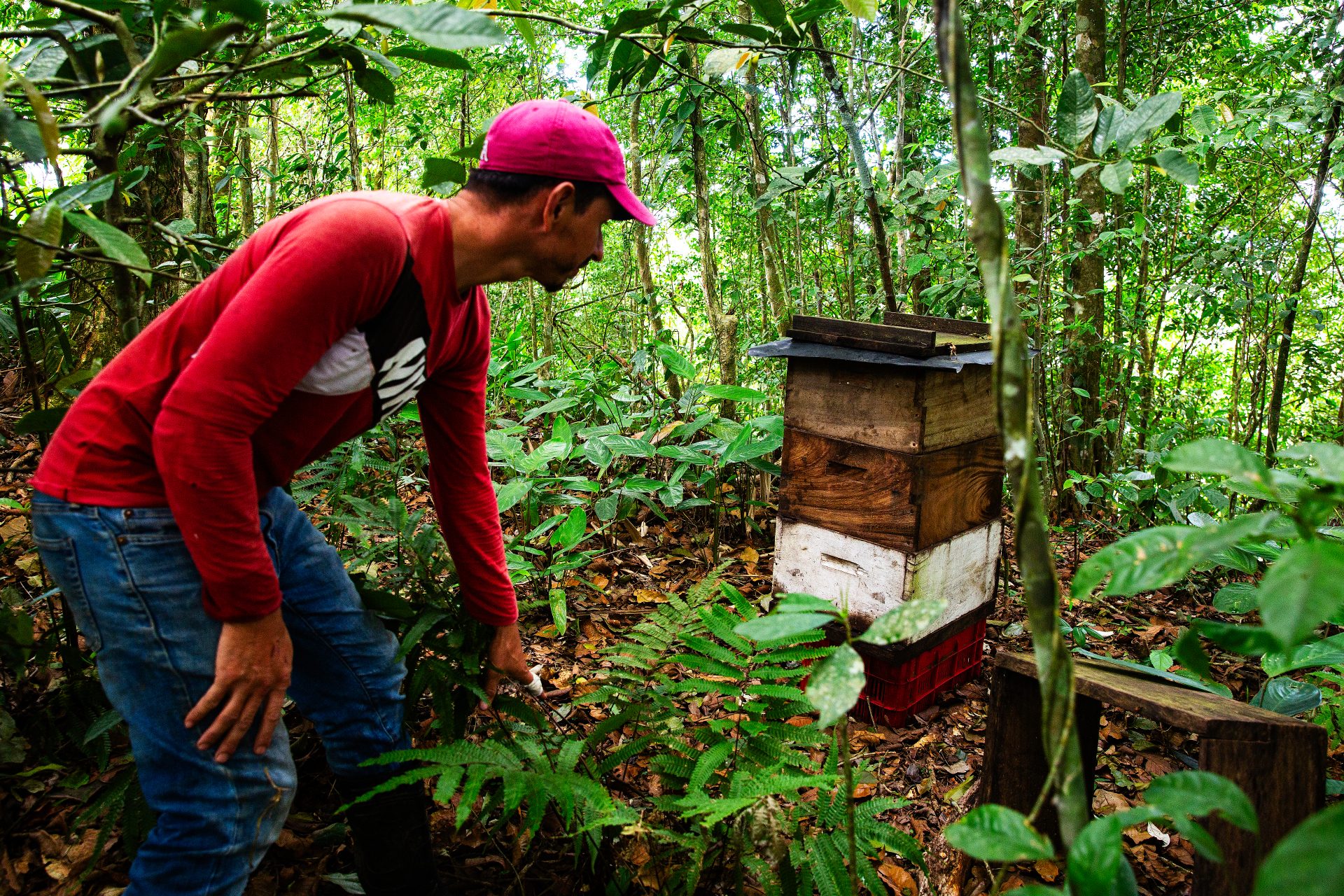Nicaragua, put a sensor on the coffee bean

While Antonio Talavera talks about his land, Jinotega, in the north of Nicaragua, we can almost see him working among the plantations. It is considered the coffee capital: it alone produces 65% of the national harvest.
“We grow it,” Talavera says, “along with beans and vegetables, so we don’t have to depend only on coffee. We are suffering the effects of climate change.” Nicaragua is the second poorest country in Latin America : over 40% of the population lives in poverty, 15% in extreme poverty. Nearly one in three children under five suffers from chronic malnutrition.
Talavera is one of the founders of Soppexcca , a cooperative founded in 1997 with 68 members, now made up of 405 small producers, including 136 women, divided into 16 grassroots cooperatives. He is also a protagonist of the project “Climate Heroes” , promoted by the Altromercato Foundation, which aims to transform producers from victims of the climate crisis into actors of change , thanks to an agroforestry system that combines coffee, biodiversity and technology. “This project was born from the environmental context and the effects that, as small producers, we are suffering: these range from alterations in the physiology of plants to phenomena such as drought or torrential rains that cause a lot of damage and affect production”, explains Jubelky Chavarría Siles , an agriculture student and environmental trainer involved in the project.

The intervention is divided into four fronts: training, plantation renewal, georeferencing and access to sustainability markets . Over three years, more than 76,000 forest and fruit trees will be distributed to strengthen the agro-forestry and 271,250 new coffee plants, to renew the fields with varieties more resistant to climate change.
"In the pilot phase of the project, we have already carried out the geolocalization activity, which consists of surveying the perimeter area of each of the farmers' production units. Later, the technical partner Solidaridad will register them on the Acorn platform, developed in collaboration with Microsoft, which uses remote sensing technology to measure the absorption of carbon dioxide achieved by reforestation," says Chavarría Siles. An average of 7 tons per hectare per year is calculated , equivalent to 2,835 tons in total.
These numbers allow producers to enter two new sustainability markets : the voluntary carbon credit market and the zero-emission coffee market. 80% of the value of the credits is paid directly to the farmers, while 20% covers the costs of certification and the technical support of the cooperative. The first compensations have already arrived : some farmers who had started forestry investments in previous years received the first payments in March. Each credit is sold at 40 dollars, double the average of the European markets, where the values vary between 12 and 20 euros. The buyer is Microsoft, which has signed a five-year agreement, with the commitment to adapt to international prices if these were to increase.
According to estimates by Solidaridad, this system can increase the earnings of small producers by 20% . "The average annual income from coffee alone is between 35,000 and 40,000 córdobas (about 1,000–1,100 dollars a year), depending on the production yield. With the carbon credit system, those who own one hectare can generate 7 credits of 40 dollars each, achieving a 20% increase in income," explains Talavera.

But the transition also involves people. The project invests in training young people, often children of the cooperative's members. Today, they are the ones who support farmers with digital tools, tracking activities, sustainable practices and environmental knowledge. "Many of us have not been able to study," says Chavarría Siles, "due to the lack of schools in rural areas and the armed conflicts of the '70s and '80s. Now we are the ones who transmit what we learn, with simple but effective methods."
The importance of the project can be understood by crossing the past and the current situation. Nicaragua has gone through a history marked by revolutions and crises: from the Somoza dictatorship to the Sandinista revolution, from the civil war to the US embargo. The protests of 2018, which broke out against the pension reform and were repressed with extreme violence, marked a turning point. Since then, power has further concentrated in the hands of the presidential couple Ortega-Murillo. A constitutional reform approved in 2024 has made their control over the institutions even stronger. New laws have limited freedom of expression, even for Nicaraguans living abroad , making any form of public criticism difficult. In this climate, many civil society groups avoid direct exposure and prefer to let the results speak for themselves. This is also why initiatives such as “Climate Heroes” take on a broader value.
" The atmosphere is a common good, we must protect it ," Talavera concludes, "We must aim to redistribute the wealth generated in the North of the world to support the movements of the South and protect the ecosystems, which are the lungs of our atmosphere, from which we all benefit. It is time for justice that is environmental, economic and social."
Photo credit Beatrice De Blasi
- Tags:
- environment
- climate
- Nicaragua
Vita.it





